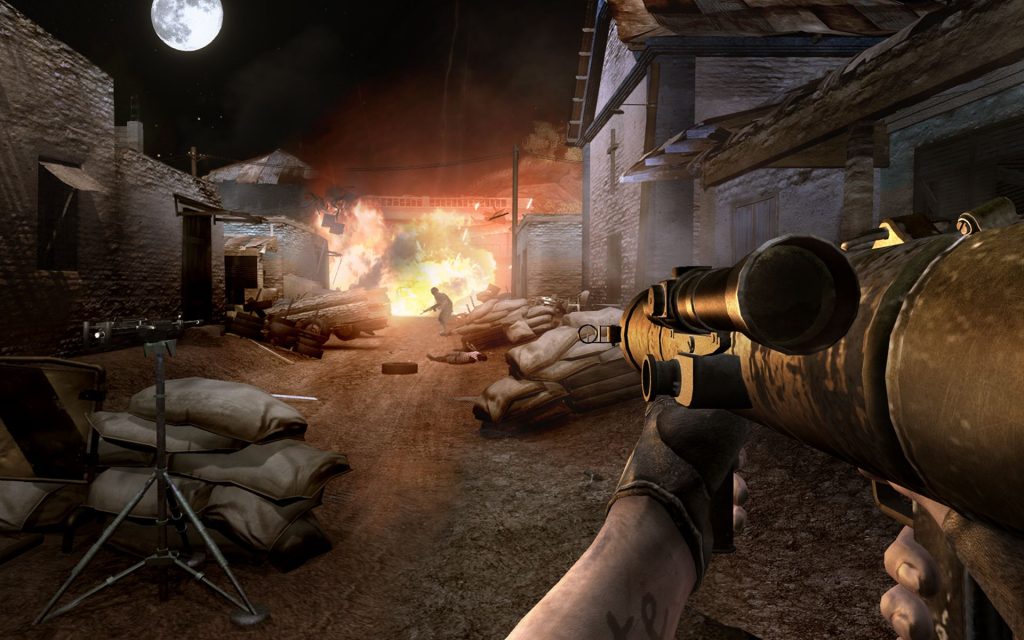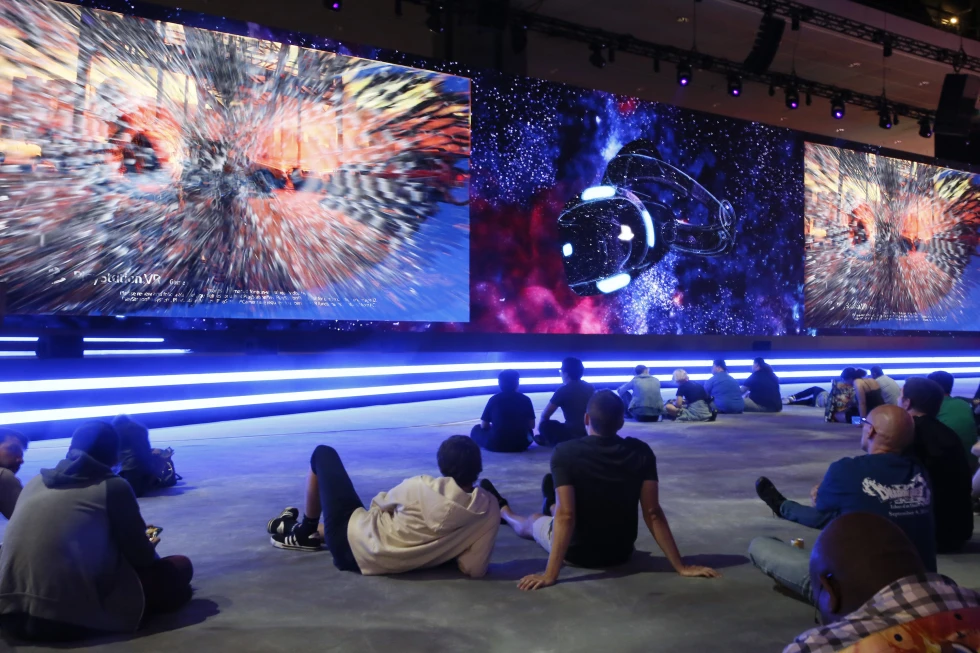In the wake of the recent announcement that the Electronic Entertainment Expo, commonly referred to as E3, will be permanently discontinued, the gaming community has been left reeling.
This decision marks the end of an era for one of the most prominent and highly-anticipated video game conventions in the world.
Since its inception in 1995, E3 has been a cornerstone of the gaming industry, providing a platform for game developers and publishers to showcase their latest innovations and upcoming releases to a global audience.
The event, which was held annually in Los Angeles, served as a nexus for industry professionals, journalists, and gaming enthusiasts alike, offering a unique opportunity to experience the cutting-edge advancements in interactive entertainment firsthand.
The announcement of E3’s closure comes as a profound shock to many within the gaming community, as the convention has long been regarded as a pivotal moment in the gaming calendar.
The impact of E3’s absence will undoubtedly be felt across the industry, as it has historically served as a catalyst for major announcements, product launches, and networking opportunities.
The void left by the discontinuation of E3 raises questions about the future of video game marketing and promotion, as well as the potential ramifications for the broader gaming ecosystem.
The decision to permanently shutter E3 is particularly poignant in light of the challenges the convention faced in recent years.
Prior to the onset of the COVID-19 pandemic, E3 had already been grappling with declining attendance and participation from key industry players.
The emergence of alternative platforms for game announcements, such as digital showcases and standalone events hosted by individual companies, had begun to erode the convention’s status as the preeminent stage for major gaming announcements.
Additionally, the escalating costs associated with participating in E3 had prompted several major publishers to opt for alternative means of engaging with their audience, further diminishing the convention’s relevance.
The Entertainment Software Association, the trade group responsible for organizing E3, had placed the convention on hiatus following the cancellation of the 2020 event due to the pandemic.
However, the decision to permanently cease operations represents a definitive conclusion to the storied legacy of E3.

The announcement has sparked widespread reflection on the evolution of the gaming industry and the shifting dynamics of how games are marketed, unveiled, and experienced by consumers.
In the aftermath of E3’s closure, the future of video game conventions and industry events has become a topic of fervent speculation.
While the absence of E3 leaves a conspicuous void in the gaming landscape, it also presents an opportunity for new and alternative platforms to emerge.
The rise of digital showcases and virtual events, which gained prominence during the pandemic, has demonstrated the potential for innovative approaches to engaging with audiences and unveiling new content.
As the industry adapts to the changing landscape, it is conceivable that new conventions and events will emerge to fill the void left by E3, offering fresh avenues for game developers and publishers to connect with their audience.
Moreover, the closure of E3 raises broader questions about the future direction of the gaming industry and the evolving nature of consumer engagement.
With the proliferation of digital distribution platforms and the increasing interconnectedness of the gaming community, the traditional model of large-scale conventions may undergo a fundamental transformation.
The shift towards digital communication and engagement, accelerated by the global pandemic, has reshaped the ways in which games are marketed, consumed, and experienced.
As such, the closure of E3 serves as a poignant reminder of the industry’s ongoing evolution and the imperative of adapting to changing paradigms.
In conclusion, the permanent discontinuation of E3 represents a watershed moment in the history of the gaming industry.
The convention’s closure underscores the profound shifts occurring within the gaming landscape, as well as the imperative of embracing innovation and adaptation.
While the absence of E3 may evoke a sense of nostalgia and loss, it also heralds the dawn of new opportunities and possibilities for the gaming community.
As the industry navigates this transformative period, it is poised to embark on a new chapter characterized by ingenuity, resilience, and a renewed commitment to engaging with audiences in novel and compelling ways.
The legacy of E3 endures as a testament to the indelible impact of the convention on the gaming industry, and its closure serves as a catalyst for reflection, introspection, and the pursuit of new horizons.
In the wake of this announcement, the gaming community stands at a crossroads, poised to chart a course towards a future defined by innovation, inclusivity, and the enduring spirit of creativity.
As the industry bids farewell to E3, it simultaneously embraces the promise of a new era, replete with untold possibilities and the potential for transformative growth.
The legacy of E3 lives on in the hearts and minds of gamers around the world, serving as a testament to the enduring power of interactive entertainment and the unyielding spirit of creativity that propels the industry forward.
In light of the ongoing global pandemic, the decision to hold a virtual-only event in 2021 was a prudent and responsible one.

However, with the hope of a return to normalcy in 2022, the cancellation of the planned comeback due to the absence of industry giants Microsoft, Sony, and Nintendo comes as a disappointing setback.
The absence of these major players not only affects the scale and impact of the event but also raises questions about the future of in-person industry gatherings.
The decision to forgo participation in the event by these industry giants may be indicative of broader concerns about the safety and feasibility of large-scale in-person events in the current climate.
It also raises questions about the efficacy of virtual events in capturing the same level of engagement and participation as traditional in-person gatherings.
As the industry grapples with these challenges, it is imperative for event organizers to adapt and innovate in order to ensure the continued relevance and success of their events.
It is with great regret that we have learned of the decision by the Entertainment Software Association (ESA) to permanently cancel the Electronic Entertainment Expo (E3), a landmark event that has served as a central showcase for the U.S. and global video game industry for over two decades.
The significance of this announcement cannot be understated, as E3 has been a cornerstone of the gaming industry, providing a platform for industry leaders, developers, and enthusiasts to come together and celebrate the latest innovations and developments in the world of gaming.
The ESA’s decision to end E3 marks the end of an era and will undoubtedly have a profound impact on the gaming community.

The expo has long been a highly anticipated and celebrated event, where companies have unveiled their latest projects, and fans have had the opportunity to experience new games and technologies firsthand.
E3 has played a crucial role in shaping the gaming landscape, and its absence will be keenly felt by all those who have been part of this vibrant and dynamic community.
In their statement, the ESA emphasized that their focus going forward will be to support member companies and the industry’s workforce.
While it is understandable that the ESA must prioritize the needs of its members and the industry as a whole, the decision to end E3 will undoubtedly leave a void in the gaming calendar.
The expo has been more than just a trade show; it has been a cultural touchstone, a source of inspiration, and a platform for innovation and creativity.
As we reflect on the legacy of E3, it is important to acknowledge the countless memories and experiences that the expo has provided to gamers, developers, and industry professionals alike.
From groundbreaking announcements and reveals to the camaraderie and excitement of being part of a shared passion, E3 has been a source of joy and inspiration for millions of people around the world.
While the decision to end E3 is undoubtedly a significant loss, it is also an opportunity for the gaming industry to explore new avenues for collaboration, innovation, and community engagement.
As we look to the future, it is essential that we continue to celebrate the spirit of E3 and the values it has embodied – creativity, inclusivity, and the power of gaming to bring people together.
In conclusion, the news of E3’s permanent cancellation is a momentous and somber occasion for the gaming community.

We extend our heartfelt gratitude to the ESA and all those who have been involved in making E3 a cherished and unforgettable experience.
While the end of E3 marks the close of a remarkable chapter, it also signals the beginning of a new era for the gaming industry, one that will undoubtedly be shaped by the enduring legacy of E3 and the passion and creativity of the gaming community.
